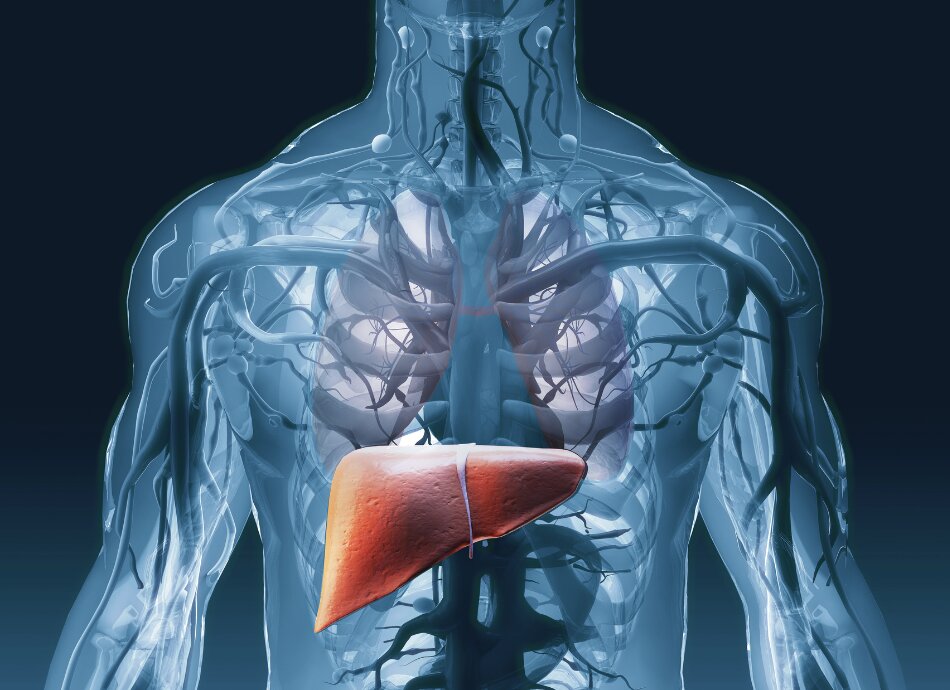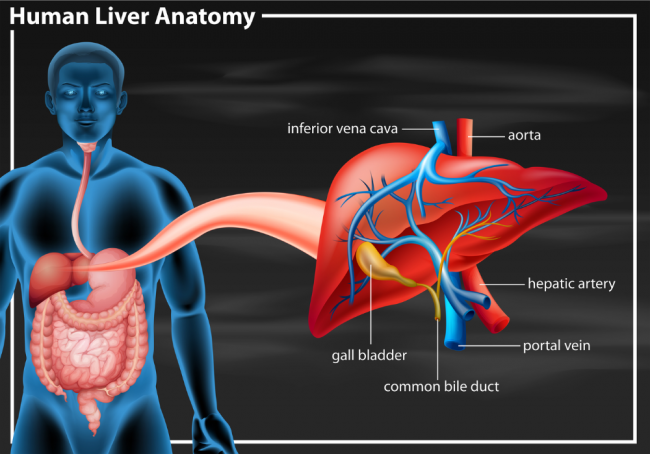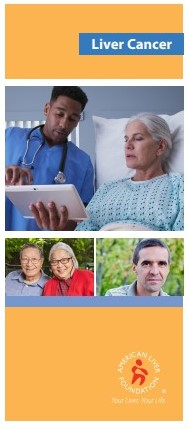You can now add Healthify as a preferred source on Google. Click here to see us when you search Google.
Primary liver cancer
Also known as hepatocellular carcinoma, HCC or hepatoma
Key points about primary liver cancer
- Primary liver cancer is cancer that started in your liver rather than spreading from cancer in another place.
- Most people will have had cirrhosis (scarring of your liver) first, but it may develop from having chronic hepatitis B or fatty liver disease.
- There may be no symptoms at first but they usually appear in the later stages when the tumour is getting bigger or causing complications.
- Treatment depends on the size of the cancer, whether it's just in one part of your liver without affecting major blood vessels and whether you have cirrhosis.
- You can significantly reduce your risk of primary liver cancer by finding and treating underlying liver diseases, eg, chronic hepatitis B and hepatitis C.

- The main type of primary liver cancer that can affect adults is hepatocellular carcinoma (HCC).
- A less common type of liver cancer can start in the bile ducts that connect your liver to your bowel and gall bladder. This is known as cholangiocarcinoma or bile duct cancer.
- A very rare type of liver cancer that starts in your blood vessels is known as angiosarcoma.
- Hepatoblastoma is a form of liver cancer that affects only young children and is also very rare.
The information on this page focuses on hepatocellular carcinoma (HCC).

Image credit: Depositphotos
Primary liver cancer usually occurs in people with prior liver problems. The following are the common risks for primary liver cancer:
- Cirrhosis – most people (90%) with primary liver cancer have had cirrhosis of the liver from underlying liver disease. In cirrhosis, your liver cells are damaged and replaced with scar tissue. Cirrhosis can be caused by chronic hepatitis B and hepatitis C, heavy drinking, haemochromatosis or fatty liver disease. Read more about cirrhosis.
- Hepatitis B infection – chronic hepatitis B can increase your risk of primary liver cancer without having cirrhosis. Read more about hepatitis B infection.
- Non-alcoholic fatty liver disease – this is a category of fatty liver disease that is not caused by heavy alcohol use. It's usually due to obesity and type 2 diabetes. Read more about fatty liver disease.
- Haemochromatosis – an inherited condition where too much iron is stored in your liver. Read more about haemochromatosis.
Primary liver cancer may not cause any symptoms at first. Symptoms usually appear in the later stages of the condition.
Symptoms of primary liver cancer include:
- pain in the upper right part of your abdomen (tummy)
- a lump or feeling of heaviness in your upper abdomen (tummy)
- right shoulder pain
- back pain
- bloating or swelling in your abdomen (tummy)
- weakness or deep fatigue
- nausea (feeling sick) and vomiting (being sick)
- yellow skin and eyes (jaundice)
- not wanting to eat and feelings of fullness
- weight loss
- bruising
- skin itchiness
- nausea and vomiting
- pale, chalky faeces (poos) and dark urine (pee)
- fever.
Your healthcare provider will ask you questions about your symptoms and examine you for signs of liver disease. Primary liver cancer and its causes can be diagnosed using a number of tests.
These include:
- blood tests such as a full blood count, liver function tests, alpha-fetoprotein, hepatitis screening
- imaging scans such as ultrasound, CT and MRI
- In some cases, a tissue sample (biopsy) may also be tested.
There are a few treatment options for primary liver cancer. Treatment depends on the size of the cancer, whether it's just in one part of your liver with no major blood vessels affected and whether you have cirrhosis.
Your doctor will also consider your age, your general health and the options available at your hospital.
Surgery
Surgery to remove the cancer and a bit of healthy liver that surrounds it may be an option if you have early-stage liver cancer and normal liver function. This requires a general anaesthetic.
Liver transplant
Surgery to remove your entire liver and replace it with a liver from a donor may be an option if you are otherwise healthy and the liver cancer hasn't spread beyond your liver.
Other treatment options
Other treatment options are available depending on your situation. Your healthcare team will discuss them with you if needed.
Other options include:
- thermal ablation
- irreversible electroporation (IRE)
- transarterial chemoembolisation (TACE)
- selective internal radiation therapy (SIRT)
- targeted drug therapy
- clinical trials.
- Don’t drink alcohol as it will cause more liver damage.
- Quit smoking if you smoke.
- Ensure you are up-to-date with your vaccinations, such as vaccinations against hepatitis A, hepatitis B, pneumococcal disease and the flu. This protects you from severe illness. Get your vaccinations as early as possible, as your body's response becomes weaker as cirrhosis progresses.
- Eat well to avoid loss of muscle mass and reduce the risk of complications. Most people with liver cancer need a high protein and high energy diet. Consider seeing a dietitian experienced in liver disease. Read more about the high protein/high fat diet [PDF, 1.3 MB].
- If you have diabetes, make sure your diabetes is well controlled. Ask your healthcare provider if you're not sure.
- If you have hepatitis B or hepatitis C and are prescribed antiviral medicines by your doctor, take the medicines as instructed.
- If you are obese, losing weight and having regular exercise can help.
- Before starting any new medicine, ask your doctor or pharmacist about its effect on your liver.
Apps reviewed by Healthify
You may find it useful to look at some Quit smoking apps, Alcohol use apps, Diabetes apps and Nutrition, exercise and weight management apps.
Vaccination: Vaccination against hepatitis B prevents hepatitis B infection which is one of the more common causes of primary liver cancer. Read more about hepatitis B vaccination.
Antiviral medicines: If you have chronic hepatitis B or hepatitis C, antiviral therapies are recommended. There is very good evidence that they keep the liver damage from turning into cirrhosis and possible liver cancer. If you already have cirrhosis, antiviral therapy is still helpful, as it stops it getting worse and becoming liver failure. Successful antiviral therapy reduces but doesn't remove the risk of liver cancer developing. Read more about hepatitis B and hepatitis C.
Monitoring: If you have chronic hepatitis B and hepatitis C, cirrhosis or other risk factors of primary liver cancer, your healthcare provider may recommend regular checking and monitoring of your liver to check if you have liver cancer. This can help prevent progression to cirrhosis or possible development of liver cancer.
Cancer Society(external link) Cancer information helpline 0800 CANCER (226 237) or email [email protected](external link)
The following links have more information on primary liver cancer. Be aware that websites from other countries may contain information that differs from New Zealand recommendations.
Liver cancer(external link) Cancer Society, NZ
Liver cancer(external link) Gut Cancer Foundation, NZ
Primary liver cancer(external link) Patient Info, UK
Hepatocellular carcinoma(external link) American Liver Foundation, US
Brochures
Note: Some resources below are from overseas so some details may be different in New Zealand, eg, phone 111 for emergencies or, if it’s not an emergency, freephone Healthline 0800 611 116.
Understanding liver cancer(external link) Cancer Council, Australia
High protein/high energy diet [PDF, 1.3 MB] Auckland DHB
Apps
Quit smoking apps
Alcohol use apps
Diabetes apps
Nutrition, exercise and weight management apps
References
- Liver cancer(external link) Gut Cancer Foundation, NZ
- Liver cancer(external link) Auckland Regional HealthPathways, NZ, 2020
- Villanueva A. Hepatocellular carcinoma(external link) N Engl J Med 2019 April 11;380:1450–1462.
- Liver cancer(external link) Mayo Clinic, US, 2023
Serious illness conversation guide Aotearoa(external link) Health Quality & Safety Commission, NZ
Adult primary liver cancer treatment – health professional version(external link) National Cancer Institute, US
Liver function tests in primary care(external link) BPAC, NZ, 2022
A spotlight on the key causes of chronic liver disease(external link) BPAC, NZ, 2022
Apps
Quit smoking apps
Alcohol use apps
Diabetes apps
Nutrition, exercise and weight management apps
Resources

Liver cancer
American Liver Foundation, US, 2019
Credits: Healthify editorial team. Healthify is brought to you by Health Navigator Charitable Trust.
Reviewed by: Dr Art Nahill, Consultant General Physician and Clinical Educator
Last reviewed:






